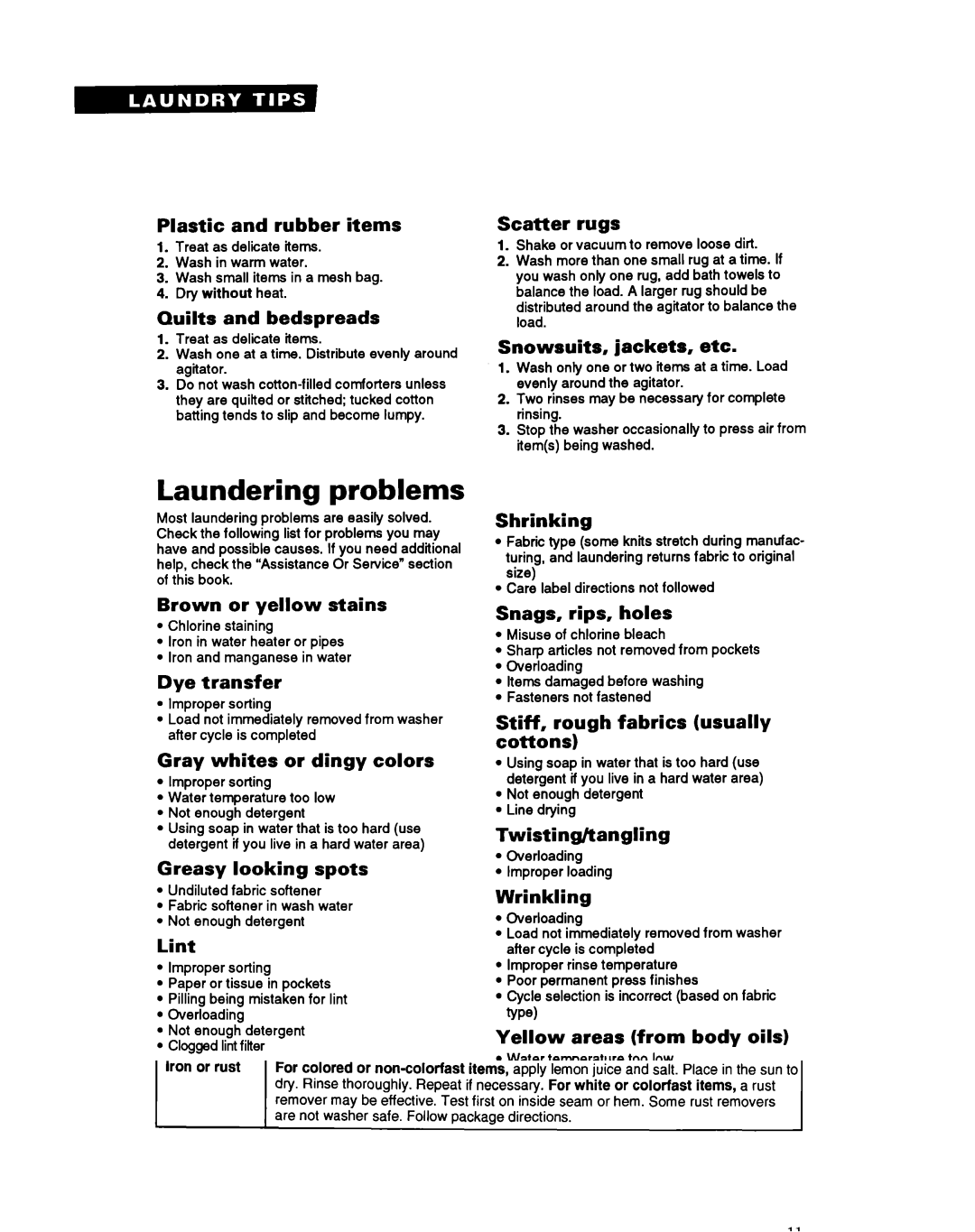RAC4244A specifications
The Whirlpool RAC4244A is a highly efficient air conditioning unit designed to provide effective cooling solutions for residential spaces. Known for its reliability and advanced features, this window-mounted air conditioner is perfect for small to medium-sized rooms, making it an ideal choice for living rooms, bedrooms, or home offices.One of the standout features of the RAC4244A is its cooling capacity. With a BTU rating of 4,000, it can effectively cool rooms up to 150 square feet, ensuring a comfortable environment even during sweltering summer months. The unit is equipped with multiple fan speeds, allowing users to select the desired level of cooling power to suit their specific needs. Additionally, the adjustable thermostat enables precise temperature control, giving users the flexibility to maintain a comfortable indoor climate.
Energy efficiency is a key characteristic of the Whirlpool RAC4244A. It boasts an Energy Efficiency Ratio (EER) that meets or exceeds industry standards, making it an eco-friendly choice that can help lower energy bills. This model also includes an ENERGY STAR certification, which indicates that it consumes less energy while providing optimal cooling performance. The use of eco-friendly refrigerants further supports its commitment to sustainability.
In terms of technology, the RAC4244A features a user-friendly interface with easy-to-use controls. The unit comes with a remote control, allowing users to adjust settings from anywhere in the room without having to get up. The digital display provides clear visibility of temperature settings and operational modes, enhancing ease of use.
Installation is a breeze for the Whirlpool RAC4244A, with a lightweight design that allows it to fit snugly in standard window frames. The unit is also designed with a tilt-out filter that makes routine maintenance simple and hassle-free. Regular cleaning of the filter ensures optimal airflow and prolongs the lifespan of the air conditioner.
In summary, the Whirlpool RAC4244A offers a range of features and technologies that cater to modern cooling needs. Its efficient cooling capacity, user-friendly controls, and energy-saving benefits make it a standout choice for those seeking a reliable air conditioning solution. Whether you are looking to beat the summer heat or simply maintain a comfortable indoor environment, the RAC4244A is a valuable addition to any home.

